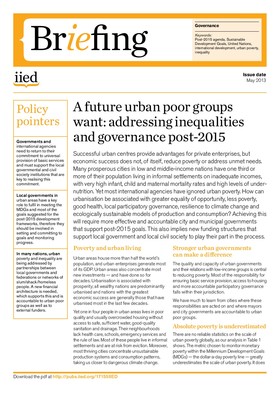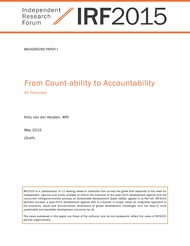A future urban poor groups want: addressing inequalities and governance post-2015

Successful urban centres provide advantages for private enterprises, but economic success does not, of itself, reduce poverty or address unmet needs. Many prosperous cities in low and middle-income nations have one third or more of their population living in informal settlements on inadequate incomes, with very high infant, child and maternal mortality rates and high levels of under-nutrition. Yet most international agencies have ignored urban poverty. How can urbanisation be associated with greater equality of opportunity, less poverty, good health, local participatory governance, resilience to climate change and ecologically sustainable models of production and consumption? Achieving this will require more effective and accountable city and municipal governments that support post-2015 goals. This also implies new funding structures that support local government and local civil society to play their part in the process.
Cite this publication
Available at https://www.iied.org/17155iied






